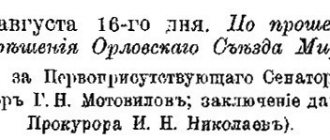Defender - a person who, in accordance with the procedure established by the Criminal Procedure Code of the Russian Federation, protects the rights and interests of suspects and accused and provides them with legal assistance in criminal proceedings (Part 1 of Article 49 of the Code of Criminal Procedure of the Russian Federation). At the same time, the defense attorney cannot be regarded as a representative of the accused. An indispensable condition for representation is the transfer to the representative of all rights of the represented. Russian criminal proceedings are based on the fact that the accused personally participates in it. The accused cannot replace himself with a defense lawyer and act through him. Thus, the defender is an independent subject of the criminal process.
Prices for lawyer-defender services
Legal advice from practice managers
| 2000 rubles +7 |
| Analysis of business prospects If you need a detailed answer to your legal question within 2 hours, describe your question in detail here. If you need online legal advice right now, contact our online chat at the bottom right. | For free |
Consultation via Skype – Convenient for residents of Russia and those who do not have time to travel to our office.
| 2000 rubles |
Defender in criminal proceedings: definition
Defender - a person who, in accordance with the procedure established by the Criminal Procedure Code of the Russian Federation, protects the rights and interests of suspects and accused and provides them with legal assistance in criminal proceedings (Part 1 of Article 49 of the Code of Criminal Procedure of the Russian Federation).
Defender is a generic concept that includes a lawyer, close relatives, as well as other persons (Part 2 of Article 49 of the Code of Criminal Procedure of the Russian Federation).
In the literature, there are different points of view on the procedural position of the defense attorney in criminal proceedings. So, for example, A.D. Boykov is of the opinion that a defense attorney combines the powers of an independent participant in criminal proceedings with the powers of a representative of the accused[1]. M.S. Strogovich believed that a defense attorney is a representative of the accused, represents the legitimate interests of the accused during the investigation and trial and protects his rights, acts in the trial on behalf of the accused, or with his consent[2].
It seems that the point of view of V.S. is more correct. Dzhatiev, who believes that the defense attorney cannot be regarded as a representative of the accused. An indispensable condition for representation is the transfer to the representative of all the rights of the represented. Russian criminal proceedings are based on the fact that the accused personally participates in it. The accused cannot replace himself with a defense lawyer and act through him. Thus, the defender is an independent subject of the criminal process[3]
Prices for the services of lawyers - defenders for suspects and accused
| Consultations | from 4 500 |
| Participation in the verification stage before opening a case | from 33 000 |
| Urgent departure for detention | from 12 000 |
| Arrival at the location of the detainee | from 6 500 |
| Conversation with the detainee, police | from 6 000 |
| Analysis of the situation with determination of the position | from 7 500 |
| Collection of evidence | from 12 000 |
| Presence of a lawyer during investigative actions | from 8 000 |
| Protection at the preliminary investigation stage | from 65 000 |
| Participation in the first court hearing | from 12 000 |
| Protection in cassation and supervisory authorities | from 41 000 |
| Visiting a client in a temporary detention facility | from 7 500 |
| Filing a complaint | from 14 000 |
| Representation of the client in the temporary detention center | from 22 000 |
| Defense in the court of 1st instance | from 45 000 |
| Appealing court decisions | from 32 000 |
| Representation of defendants in the cassation court | from 22 000 |
Everything about criminal cases
Go to the text of the Code of Criminal Procedure
Url Additional information:
Three types of defenders
- Part 2 49 Code of Criminal Procedure
a defender is a lawyer
- Part 2 49 Code of Criminal Procedure
the protector can be a close relative
- Part 2 49 Code of Criminal Procedure
the defender may be another person
Peculiarities of admission of other persons (except lawyers)
- Part 2 49 Code of Criminal Procedure
the court may admit another person (not a lawyer), but is not obliged
- Part 2 49 Code of Criminal Procedure
another person is allowed only along with a lawyer
- Part 2 49 Code of Criminal Procedure
in the magistrate's court, another person may act instead of a lawyer
Getting involved
- Part 3 49 Code of Criminal Procedure
the defender steps in:
— clause 1, part 3, 49 Code of Criminal Procedure
from the moment of being brought as an accused
— clause 2, part 3, 49 Code of Criminal Procedure
from the moment of initiation of the case
- clause 3, part 3 49 Code of Criminal Procedure
from the moment of detention
- clause 3.1 part 3 49 Code of Criminal Procedure
from the moment of notification of suspicion
— clause 4, part 3, 49 Code of Criminal Procedure
from the moment of psychiatric examination
— clause 5, part 3, 49 Code of Criminal Procedure
from the moment of application of procedural coercive measures
— clause 6, part 3, 49 Code of Criminal Procedure
from the moment the verification of the message begins (
Part 1.1 144 Code of Criminal Procedure
)
Entry procedure for lawyers
- Part 4 49 Code of Criminal Procedure
entry into the case only on the basis of a warrant
- Part 4.1 49 Code of Criminal Procedure
meeting before entering into an affair, to obtain consent
- Part 5 49 Code of Criminal Procedure
signature on state secrets
- Part 6 49 Code of Criminal Procedure
two accused cannot be defended if there are contradictions
Practical aspects
Three types of defenders
- lawyer, public defender, relative
Article 49 of the Code of Criminal Procedure. Defender
Url Additional information:
— 53 Code of Criminal Procedure
powers of the defender
1) A defense attorney in a criminal case is a person who, in
accordance with the procedure established by the Criminal Procedure Code, protects the rights and interests of suspects and accused and provides them with legal assistance in criminal proceedings.
2) The following participate as defenders:
Url Additional information:
— clause 10
Only lawyers can defend Plenum No. 29 at the pre-trial stage
Advocate
The lawyer has
maximum powers, but dependent on the chamber and court
Advocacy
Advocacy
, selection of materials, all features
— lawyers.
Url Additional information:
Limitation
Along with the lawyer
, the participation of the public defender only with him
By determination or order of the court, the following may be admitted as a defense attorney in a criminal case
along with a lawyer:
Url Additional information:
Relative
Relative without legal
experience as a public defender
- one of the accused’s close relatives;
Url Additional information:
Public Defender
Public Defender
, its features and real possibilities
- or another person for whose admission the accused applies.
During proceedings before the magistrate, the specified person is admitted - and instead of a lawyer.
3) The defense attorney participates in a criminal case:
Url Additional information:
- Part 5 172 Code of Criminal Procedure
the decision is announced to the accused and the defense lawyer
1). from the moment a decision is made to charge a person as an accused, with the exception of cases provided for in clauses 2 - clause 5, part 3 of 49 of the Code of Criminal Procedure;
Url Additional information:
- clause 3, part 4 46 Code of Criminal Procedure
defense attorney for the suspect from the moment the case was initiated
2). from the moment of initiation of a criminal case against a specific person;
Url Additional information:
- clause 3, part 4 46 Code of Criminal Procedure
defense attorney for the suspect - from the moment of arrest
- Part 4 92 Code of Criminal Procedure
meeting with a defense lawyer - before the first interrogation
3). from the moment of actual detention of a person suspected of committing a crime, in the following cases:
a) provided for by 91 Code of Criminal Procedure and 92 Code of Criminal Procedure;
b) application to him in accordance with 100 Code of Criminal Procedure of a preventive measure in the form of detention;
Url Additional information:
- clause 3, part 4 46 Code of Criminal Procedure
defense attorney for a suspect with notice of suspicion
3.1) from the moment of delivery of a notification of suspicion of committing a crime in the manner established by Article 223.1 of the Code of Criminal Procedure;
4). from the moment a decision to order a forensic psychiatric examination is announced to a person suspected of committing a crime;
5). from the moment of implementation:
Url Additional information:
— 111 Code of Criminal Procedure
other measures of procedural coercion
— other measures of procedural coercion;
- or other procedural actions affecting the rights and freedoms of a person suspected of committing a crime;
Url Additional information:
- Part 1.1 144 Code of Criminal Procedure
the right to a lawyer during the pre-investigation check
6). from the moment of the commencement of procedural actions affecting the rights and freedoms of the person in respect of whom the report of a crime is being verified in the manner prescribed by Article 144 of the Code of Criminal Procedure.
Url Additional information:
— Important changes to the norm of Part 4 49 of the Code of Criminal Procedure were introduced by Law No. 73-FZ of April 17, 2017, previously the wording of this part of the article looked like this: “The lawyer is allowed to participate in the case,” this implied that the investigator or the court should make a certain decision “ to allow - not to allow” Nowadays, a lawyer is not “allowed” by anyone, he simply “enters” into the case.
— Part 2 Article 6
N 63-FZ when a lawyer needs a warrant
Notification procedure
(not permissive)
Nothing except
warrants: entry into the case takes place by notification
4)
A lawyer enters a criminal case as a defense attorney upon presentation of a lawyer's certificate and a warrant. From this moment on, the lawyer is subject to the rules established by Part 3 53 of the Code of Criminal Procedure
.
Url Additional information:
— p.p. "b" p.4
Standard for obtaining consent to defense if invited by another
Application for admission
Statement from the client
on the admission of a lawyer upon entry into the case
4.1) If it is necessary to obtain the consent of the suspect or accused for the participation of a lawyer in a criminal case, before entering into a criminal case, the lawyer is given a meeting with the suspect or accused upon presentation of a lawyer’s identification and a warrant.
5) If a defense attorney participates in proceedings in a criminal case, the materials of which contain information constituting a state secret, and does not have appropriate access to the specified information, he is obliged:
- sign a non-disclosure agreement,
— take measures to prevent other persons from becoming familiar with them,
— as well as comply with the requirements of the legislation of the Russian Federation on state secrets when preparing and transmitting procedural documents, statements and other documents containing such information.
Url Additional information:
— P.10
Plenum No. 29, contradictions between the accused lead to the recusal of a lawyer
6) The same person cannot be a defense attorney for two suspects or accused if the interests of one of them contradict the interests of the other.
Return to the text of the Code of Criminal Procedure
Seek advice
Prices for the services of a lawyer - defender of victims
| Oral consultations | from 4 000 |
| Written | from 5 000 |
| Drawing up applications to open a business | from 7 500 |
| Complaint about refusal to open a case | from 10 000 |
| Presence during an investigative action | from 6 000 |
| Drawing up a complaint | from 1 500 |
| Request for a lawyer | from 2 500 |
The right of the accused to have a defense lawyer
Lawyer Antonov A.P.
In clause 8, part 4, art. 47 of the Code of Criminal Procedure of the Russian Federation enshrines the right of the accused “to use the assistance of a defense lawyer, including free of charge in cases provided for by this Code.” Once again, the legislator used the phrase “use help.” In this regard, let us reveal the etymological meaning of the terms “use” and “help”.
"To take advantage of" means to "take advantage of" something. “Help” is “assisting” someone in something, “participating” in something, “bringing relief” to someone. Thus, the defense attorney, in cases provided for by law, is obliged to assist the accused in defending his own rights and (or) legitimate interests in criminal proceedings, by all means that do not contradict the law, to facilitate the participation of the accused in the criminal case, as well as in the decision of those facing in this regard him tasks.
The accused has the right to have the assistance of a defense lawyer. The term “defender” is used four more times in Art. 47 of the Code of Criminal Procedure of the Russian Federation (clauses 9, 10, part 4, parts 5 and 6). In all of these cases, the concept of “defender” means a person admitted as such by the investigator (inquirer, etc.), judge or court into the criminal process. Suspects, accused persons and persons who have committed an act prohibited by criminal law in a state of insanity may have a defense attorney. Moreover, until the fact of committing a socially dangerous act by an insane person has not been established, a lawyer can also defend a person in respect of whom a decision has been made to order a forensic psychiatric examination (Article 438 of the Code of Criminal Procedure of the Russian Federation) and evidence has been collected, which in the usual manner (if there had not been doubts about his sanity) would allow a decision to be made to charge the person as an accused. In the article being commented on, we are talking about the defense attorney of only the accused.
A lawyer can become a defender after presenting a warrant for the execution of an assignment issued by the relevant legal entity and a lawyer’s certificate. By determination or order of the court, any citizen for whose admission the accused applies may be admitted as a second defense attorney. And during proceedings before a magistrate, the accused has the right to have a defense attorney—not a lawyer. The magistrate allows the specified person to act as a defense attorney instead of a lawyer (Part 2 of Article 49 of the Code of Criminal Procedure of the Russian Federation). The named person has an identification document; The law does not require a power of attorney, legal education, or any professional knowledge and experience. The Constitution of the Russian Federation does not contain any indication of the criteria, compliance with which indicates the proper level of qualifications of persons providing legal assistance to citizens.
If a citizen who is not a lawyer is admitted to the process as a defense attorney, the withdrawal of the defense lawyer from the process or the completion of the consideration of the case by a magistrate (at first instance) does not change the status of this citizen. Admitted, in compliance with the requirements of the law, into criminal proceedings as a defense attorney, he remains so at subsequent judicial stages. Accordingly, the accused has the right: to have meetings with such a defense lawyer alone and confidentially, without limiting their number and duration; participate, with the permission of the investigator, in investigative actions carried out at the request of this defense lawyer, get acquainted with the protocols of these actions and submit comments on them (clauses 9 and 10, part 4, article 47 of the Code of Criminal Procedure of the Russian Federation). The participation in a criminal case of a defense attorney who is not a lawyer (as well as one who is one) does not serve as a basis for limiting any of the rights of the accused.
But for free, in the cases provided for by the Code of Criminal Procedure of the Russian Federation, the accused can only use the help of a defense attorney, who is a lawyer and, moreover, participates as a defense attorney in criminal proceedings as appointed by the investigator (inquiry officer, etc.), the court (judge).
The right of the accused to use the assistance of a defense attorney exists separately from the right in cases provided for by the Code of Criminal Procedure of the Russian Federation to receive the assistance of a defense attorney free of charge. That is why in paragraph 8 of Part 4 of Art. 47 of the Code of Criminal Procedure of the Russian Federation uses the phrase “including free of charge.” And for the same reason, we cannot agree with scientists who combine the two provisions provided for in paragraphs 7 and 8 of Part 4 of Art. 47 of the Code of Criminal Procedure of the Russian Federation includes one right that the accused allegedly has “to use the services of an interpreter and defense attorney for free.” If the accused, indeed, always has the right to use the services of an interpreter for free, then he uses the free assistance of a defense lawyer only “in cases provided for” by the Code of Criminal Procedure of the Russian Federation. But what kind of cases are these when the accused may not pay for the services provided to him by the defense lawyer?
According to Part 2 of Art. 50 of the Code of Criminal Procedure of the Russian Federation, the investigator (inquiry officer, etc.), the court (judge) are obliged in all cases when an appropriate petition has been received from the accused, to ensure the participation of a defense lawyer in the criminal case. And it doesn’t matter whether the accused has money or not. If the accused has made a request to be provided with a defense lawyer, the investigator (investigating officer, etc.) must satisfy the stated request.
But even when such a request is granted, the defense lawyer does not take part in all investigative actions. Within the meaning of the provisions enshrined in Art. Art. 157, 164, 165, 182 and 183 of the Code of Criminal Procedure of the Russian Federation, “the requirement to immediately ensure the right to the assistance of a lawyer (defender) cannot be extended to cases of investigative actions not related to the person giving evidence and of an urgent nature, prepared and carried out without prior notification of a person about their conduct due to the threat of destruction (loss) of evidence.” Such investigative actions include, for example, obtaining samples for comparative research, which does not exclude the participation of the defense attorney who has appeared, but is not suspended to ensure his appearance.
But this is rather an exception to the general rule. The rule itself requires that the accused be provided with a defense attorney. The latter can be either a defense attorney, whose work will be paid for by the accused or for the accused by another person, or a defense attorney who will not receive any money from the accused. It is up to the accused to decide which defense lawyer the accused should be provided with. At least he can't be forced to choose a paid defense attorney. True, he will not have much choice if a free defense lawyer is appointed. In this case, he will be able to refuse a specific lawyer only when the defender is subject to challenge on the grounds provided for in Part 1 of Art. 72 of the Code of Criminal Procedure of the Russian Federation, and in accordance with Part 1 of Art. 69 Code of Criminal Procedure of the Russian Federation.
But we should not forget about the possible refusal of the accused to have a lawyer. How, in this case, is his right to use the assistance of a defense lawyer implemented, including free of charge in cases provided for by the Code of Criminal Procedure of the Russian Federation? In the situation proposed for analysis, one should remember about cases of mandatory participation of a defense attorney. When the participation of the accused’s defense attorney in a criminal trial is mandatory, and the latter refuses a defense attorney and, accordingly, does not want to pay for his services, the investigator (investigator, etc.) still assigns a defense attorney to the accused. In other words, the facts of the mandatory participation of a defense attorney should also be attributed to those “cases provided for by this Code” that are mentioned by the legislator in paragraph 8 of Part 4 of Art. 47 Code of Criminal Procedure of the Russian Federation.
Based on the content of Art. 51 of the Code of Criminal Procedure of the Russian Federation, the defender of the accused must participate in a criminal case if:
1) the accused did not refuse a defense lawyer in the manner prescribed by Art. 52 Code of Criminal Procedure of the Russian Federation;
2) the accused is a minor;
3) the accused, due to physical or mental disabilities, cannot independently exercise his right to defense;
4) the trial is conducted in the manner prescribed by Part 5 of Art. 247 Code of Criminal Procedure of the Russian Federation;
5) the accused does not speak the language in which the criminal proceedings are being conducted;
6) the person is accused of committing a crime for which a sentence of imprisonment for a term exceeding fifteen years, life imprisonment or the death penalty may be imposed;
7) the criminal case is subject to trial by a court with the participation of a jury;
9) while still a suspect, he filed a petition for an investigation in a criminal case in an abbreviated form in the manner established by Chapter 32.1 of the Code of Criminal Procedure of the Russian Federation.
Sincerely, lawyer Anatoly Antonov, managing partner of the law firm Antonov and Partners.
Still have questions for your lawyer?
Ask them right now here, or call us by phone in Moscow +7 (499) 288-34-32 or in Samara +7 (846) 212-99-71 (24 hours a day), or come to our office for a consultation (by pre-registration)!









